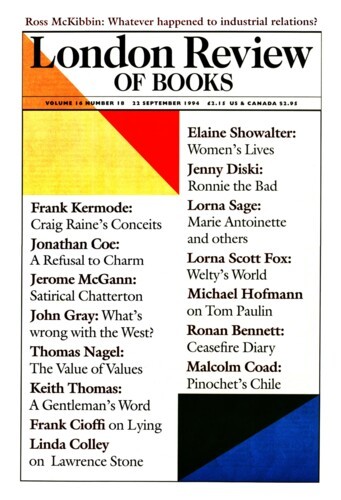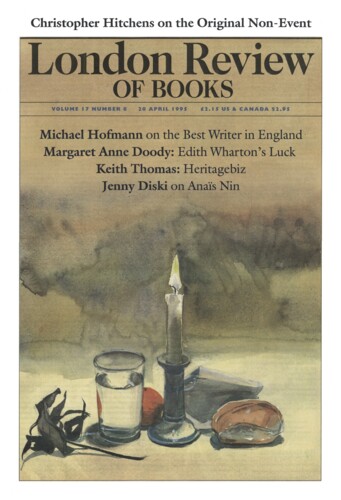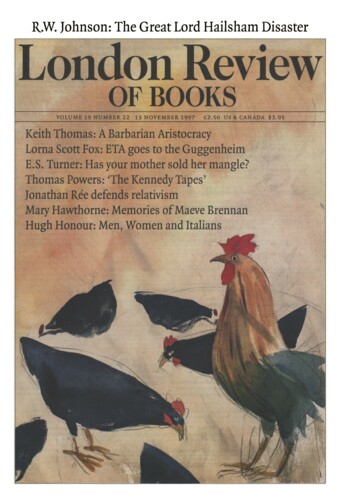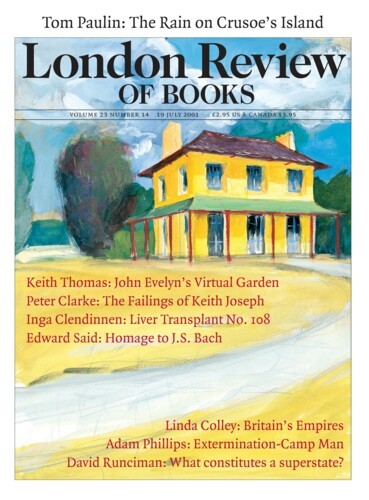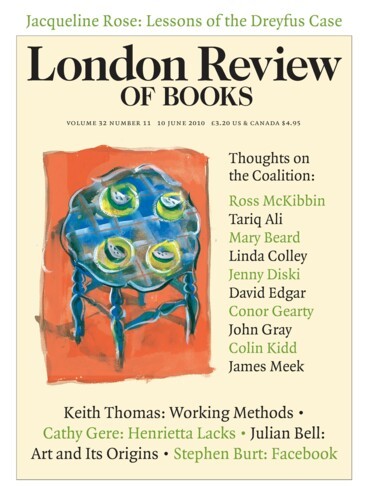Gentle Boyle
Keith Thomas, 22 September 1994
Most of what we know and think is secondhand. ‘Almost all the opinions we have are taken by authority and upon credit,’ wrote Montaigne, in an age when the sum of human knowledge was a great deal less than it has since become. Nowadays, we cannot begin to verify the vast structure of accepted scientific doctrine for ourselves, but have to take it on trust. Even researchers conducting laboratory experiments at the scientific coalface are heavily reliant on the say-so of others. If they are to achieve anything, they must assume that the materials with which they work are what they purport to be, that their instruments are reliable, that the tables to which they refer have been accurately printed, that accounts of previous experiments are not fabrications and that their laboratory technicians are not practical jokers. Of course, it is possible to test all these things. But not only would such checks consume an inordinate amount of time: they would be impossible to conduct without further dependence on the testimony of others. As C.A.J. Coady recently showed in his Testimony: A Philosophical Study, epistemic individualism, the idea that we should doubt everything except what we have established single-handedly for ourselves, is an absurdity.
